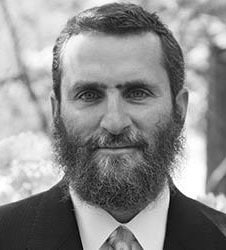This week’s Torah reading deals with the rebellion of Korach, a cousin of Moses, who contends that he is just as deserving of leadership as the great lawgiver. Korach claims that Moses has usurped power for reasons of self-aggrandizement. Moses, whom the Bible declares to be the most humble man on the earth, acts out of character, becoming visibly angry, and says to G-d, ““Do not accept their offering. I have not taken a donkey from a single one of them, and I have not harmed a single one of them.” Moses is declaring that he never acted out of reasons of ego. That which he did, in setting up the Jewish leadership structure, was at G-d’s command. Ultimately, things do not fare well for Korach and his cohort. They are swallowed by the earth, never to be heard from again.
Korach is like a lot of people who practice religion. He wishes to be close to G-d, he wishes to be elevated above the rest of the people. But his motivation is for G-d to do something for him. He wants religion to fill the emptiness of his life, he wants it to help him grow. Korach loves G-d and wants to draw close to him. He is upset that Moses is closer. But whereas Moses serves G-d by His command, Korach’s desire is to fill an inner emptiness and void. Lacking meaning and purpose in life, he turns to G-d to fill in the space.
Real religious is God-centric. God is supposed to be at the apex of our lives, their every action revolving around His will. I reject utterly this superficial notion that religions is designed to help us grow. We are not plants. If you want to grow eat your Wheaties. To the contrary, religion and G-d’s will are to be obeyed even if it at times bores you. You don’t get married to grow as a person. Doing so would entering into a relationship to use your spouse for your own spiritual objectives. You get married because you have love to offer and you want to make someone happy.
But Korach represents the man or woman who comes to Church or Synagogue seeking the opposite. They want God to cater to their needs. They want the Synagogue service to give them the same good vibes as a Bruce Springsteen concert. Theirs is a man-centered religion. Religion is supposed to move them, enlighten them, and make them grow. Religion exists to refine their characters. They draw closer to G-d for their own purposes, however noble.
I often tell my Christian friends that they can learn much from Judaism about the correct way to understand Christ. The classic Christian understanding of the death of Christ is that Jesus lays down his life for humans in order to atone for their sin. This reflects the thought conveyed above. G-d exists for the benefit of the people. He dies so that the people can be saved and it’s all about them. But the quintessential symbol of Judaism is precisely the opposite. Abraham is prepared to sacrifice his son Isaac at G-d’s command. Humans exist to perform the divine will, whatever the consequences. We are here for G-d, not the reverse. So too, Jesus is martyred by the Romans for his desire to live as a Jew in a land that was being brutalized by Roman tyranny. He died serving his G-d.
Korach is the archetype of all those who go to Synagogue in order to find spiritual uplift, who go to Church to feel inspired, who practice Buddhism to find enlightenment. And should any of these religions fail to deliver, they become lapsed because the religion’s purpose, from their perspective, is self-edification.
This is a selfish mindset that simply extends human narcissism into the spiritual realm. It is this obsession with self which has wrought so much havoc on the modern world. In essence it is the mindset of the consumer. Everything exists for his benefit. Like Pacman, he devours everything in his midst, including G-d himself. It is the mind of utilitarian who sees personal utility in all that he encounters
Hence, the punishment for Korach and his followers is unlike any found anywhere else in the Bible. He is swallowed by the earth, never to be heard from again. His end reflects his very essence. In his life he was a black hole, sucking the oxygen out of all that he encountered. His death reflected this same insatiability. An earth that he had plundered for his own purposes gulped him down in one swish, never to be heard from again.
Rabbi Shmuley Boteach is founder of This World: The Values Network. His upcoming books “Ten Conversations You Need to Have with Yourself. (Wiley). Follow him on Twitter @RabbiShmuley.
Written by Rabbi Shmuley in memory of Machla bat Bina & Pinchas Dabakarov























 More news and opinions than at a Shabbat dinner, right in your inbox.
More news and opinions than at a Shabbat dinner, right in your inbox.